We often hear about the significance of keywords for search engine optimization, but many people are unaware of LSI keywords. Besides other techniques SEO specialists use to boost SEO rankings, using related words and phrases is a strategy that increases search visibility and improves user experience. In this guide, I will discuss LSI keywords and why they matter for SEO.
What are LSI Keywords?
LSI (latent semantic indexing) keywords are terms, words, or phrases that are conceptually related to the keyword your content is targeting. For instance, if your target keyword is ’email marketing’, LSI keywords might include ’email marketing tools’, ’email marketing best practices’, ’email campaigns’, etc.
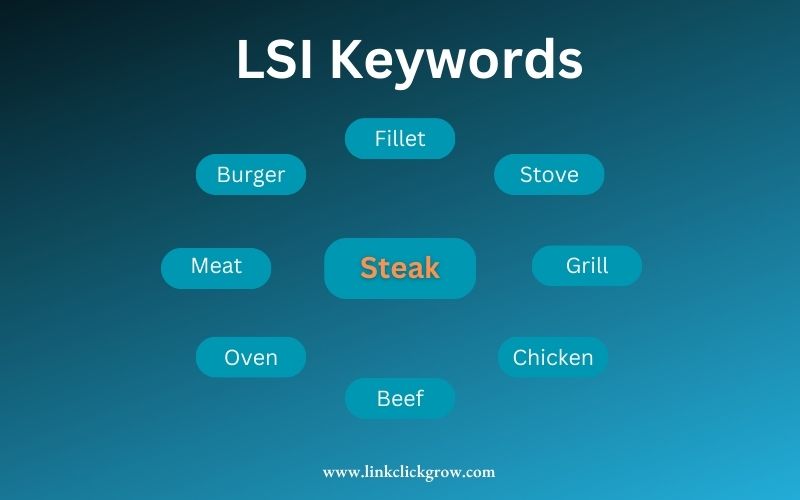
LSI keywords help search engines and users comprehend the context of your content. They help improve your search engine ranking by improving your content’s relevance. Additionally, it becomes easier for the users to find your content.
In the past, Google and other major search engines used to determine the keyword based on how frequently a word appeared on a page. For example, if the content contains the word ‘cars’ often, the search engines would consider the page to be about cars.
In other words, keyword density used to play a significant role in SEO.
However, search engines and search algorithms have considerably evolved over time. The search algorithms no longer rely on keyword density. Instead, they consider the overall context of the content. Therefore, LSI keywords are critical for adding relevance to your content.
LSI Keywords vs. Synonyms
Synonyms and LSI keywords are closely related but different things.
A synonym is just another word that can be used as an alternative. However, at times, synonyms lack context. For example, if the content is about ‘apartment’, a synonym that lacks context is ‘flat’. The search engines may not know if you are referring to an accommodation or a surface level.
On the other hand, LSI keywords clarify the context of your content. LSI keywords for the keyword ‘apartment’ include ‘accommodation’, ‘bedrooms’, and ‘rent’.
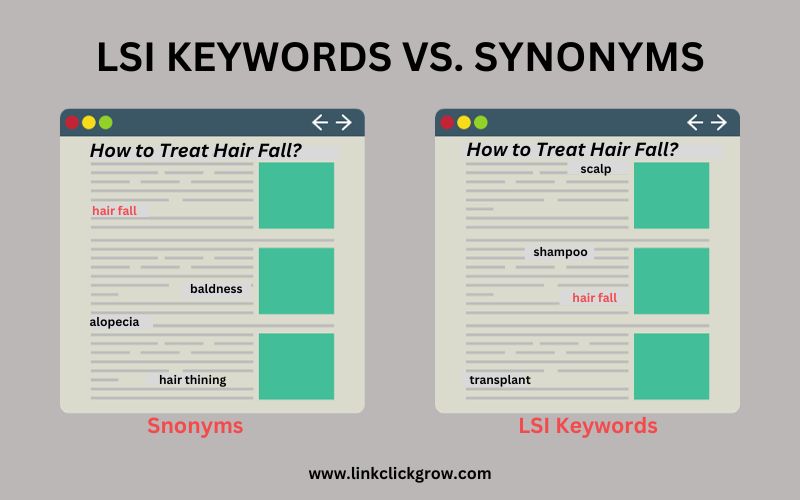
Simply put, Google and other search engines expect a specific set of words and phrases in content when determining its relevance to the search query. If your content lacks those keywords, the search engines may not find your web page relevant and may not rank it.
Therefore, it is critical to demonstrate the relevance of your content through semantically related keywords.
Do LSI Keywords Play a Role in Search Engine Algorithms?
To an extent, yes, they do!
Although LSI keywords are not a ranking factor, they assist search engines in understanding the context of your content. Related keywords make it easier for search engines to get a deeper understanding of words or phrases used in your content.
A better understanding of content assists search engines in:
- Providing relevant content to users that matches search intent.
- Identifying spammy and low-quality content.
- Providing the best user experience by keeping irrelevant content from appearing in SERPs.
Benefits of Using Related Keywords and Phrases
With time, search engines have become smarter and more intelligent. The search algorithms now use AI to provide the most relevant results to their users. They consider not only SEO keywords but also related words and phrases to understand the intent and meaning of the content.
Therefore, using LSI keywords in your content is crucial for SEO and benefits you in the following ways:
Keep Your Content from Being Marked as Spam
The use of related words and phrases in your content enhances the quality of the content. It shows you understand the topic well, making your content credible. Most importantly, LSI keywords differentiate your content from spun content. As a result, Google and other search engines know your content is original and not spam.
Boost Your Search Engine Ranking
Crawlers scan the contents of your page to understand its context. If the intent and meaning of your content are clear to the search engines, your content will likely rank higher in SERPs. In other words, related words help search engines realize that your content matches the search query’s intent. As a result, search engines reward your content with a higher ranking.
Offer More Ranking Opportunities
Related search terms and phrases help you qualify for more ranking opportunities. Without associated words, you may only rank for the SEO keywords. On the contrary, using LSI keywords enables you to rank for additional search terms you have used in your content.
Prevent Your Content from Keyword Stuffing
Using semantically related keywords adds diversity to your content and prevents keyword stuffing. Therefore, instead of frequently using the same keyword over and over again, use LSI keywords to avoid Google penalties.
Improves Relevance of Content
Another benefit of LSI keywords is that they improve the relevance of your content without overusing SEO keywords. The more relevant your content appears to search engines, the higher it will rank your web page in search engine result pages.
Enhances User Experience
Related keywords and phrases make your content more meaningful and authoritative, enhancing user experience and boosting audience engagement. A better user experience decreases the bounce rate while increasing the average time spent on a web page, boosting SEO rankings.
How to Find Related Keywords or LSI Keywords?
Now, how can you find LSI keywords for your content? Below are a few ways to find related keywords and phrases that users and search engines expect in your content.
LSI Graph
LSIGraph is a specialized tool that generates LSI keywords related to your keyword. You need to enter your target keyword to get a list of related words or phrases for your content.
Analyze Top Ranking Content
The best way to find LSI keywords is to analyze the top-ranking content. Carefully look for related words or phrases in top-performing web pages and use them in your content to boost your ranking.
However, manually analyzing web pages can take a lot of work. Therefore, I recommend using a tool like SurferSEO, which is a popular tool for generating relevant keywords based on top-performing pages. It enables users to select a list of top-ranking pages for a particular keyword, analyze the pages, and suggest the relevant terms to be included in your content.
Bold Words or Phrases in SERP Listings
Another popular way of finding related keywords is observing SERP listings. In search result listings, Google highlights the words or phrases related to the search term in bold. In other words, if you type a keyword in the search bar, the bold terms in SERP listings are related terms.
In the screenshot below, you can see the search results for the keyword ‘jogging shoes’. Google has highlighted the keyword and related words and phrases, such as ‘running shoes’, ‘joggers’, and ‘shoes’.
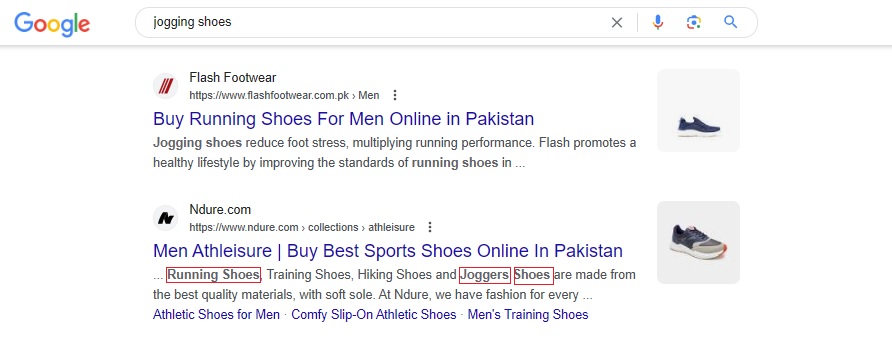
AutoComplete Feature of Search Engines
It is another reliable way of finding related keywords or phrases. Top search engines, including Google, Yahoo, and Bing, have an autocomplete feature, which shows suggestions based on user searches.
For example, for the target keyword ’email marketing’, typing the keyword in the Google search bar gives you the following auto-complete suggestions:
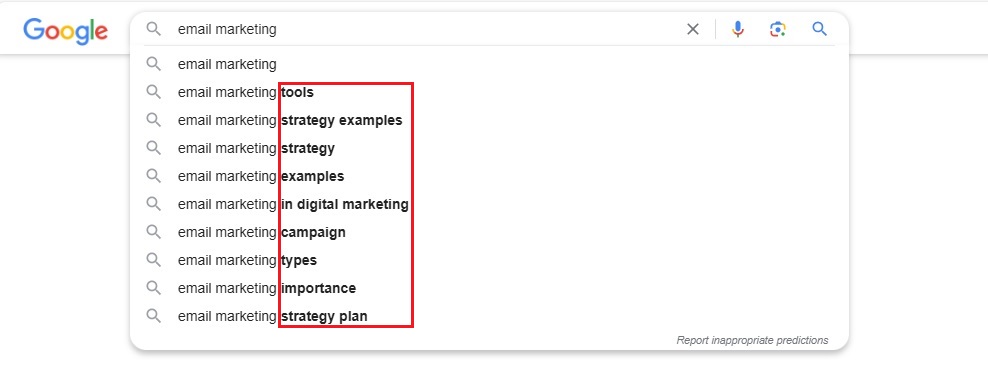
Soovle
Using the autocomplete features of Google and other search algorithms may require a lot of time and energy. Therefore, you can use Soovle to get auto-complete suggestions for top search engines and sites in one place.
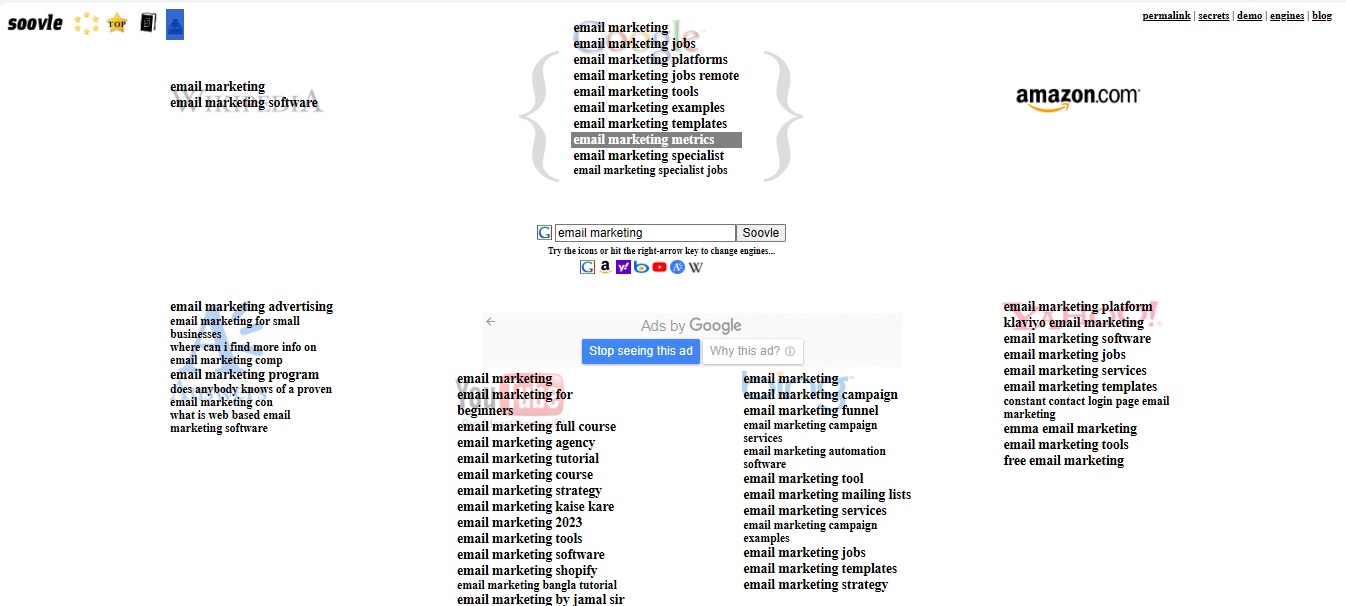
Related Searches
Like autocomplete, search engines also display related searches at the bottom of the first page of SERPs. Although many of the suggestions in related searches would be the same as in autocomplete, a few would be unique.
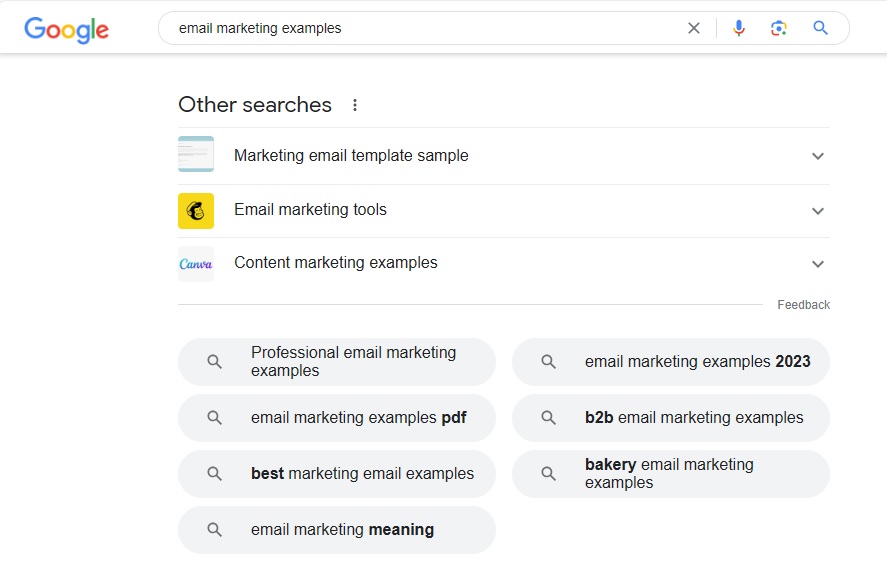
People Also Ask Feature
Another valuable feature of Google that you can use to find LSI keywords is the “People Also Ask” snippet. In this snippet, Google shows popular queries related to the search term. Since the snippet shows popular questions people ask, those queries are ideal to be added to your content.
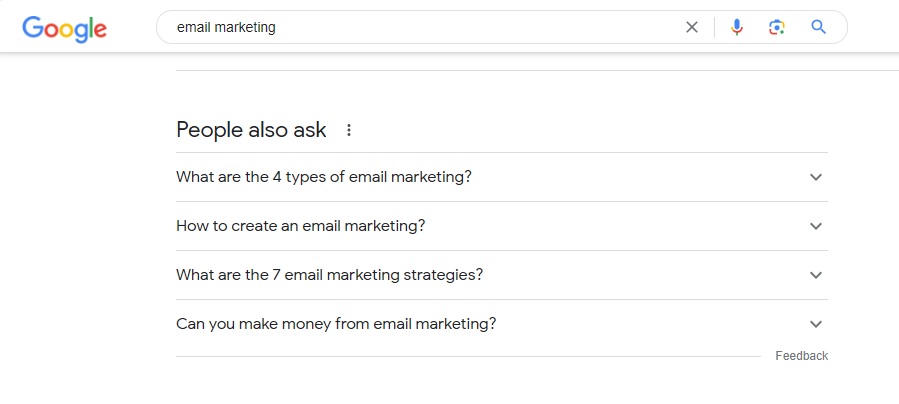
Besides related queries, people also ask snippet is best for finding long-tail keywords conceptually associated with the search term. One exciting aspect of this snippet is that the list of questions expands if you click on any one of them. In other words, using this snippet, you can get an unlimited list of suggestions:
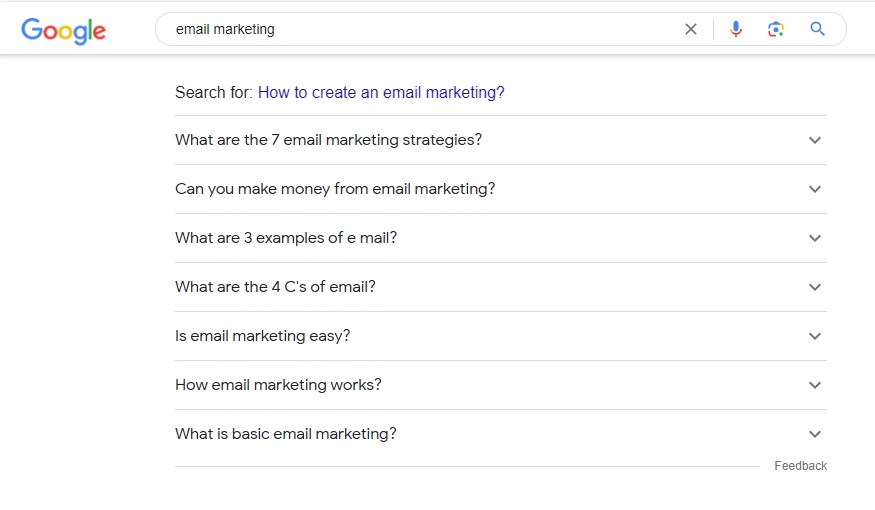
Keyword Research Tools
Keyword research tools, such as Serpstat, and SEMrush, give an exhaustive list of related keywords that you can use in your content.
For example, type the target keyword in SEMrush, and you will get an exhaustive list of keyword suggestions.
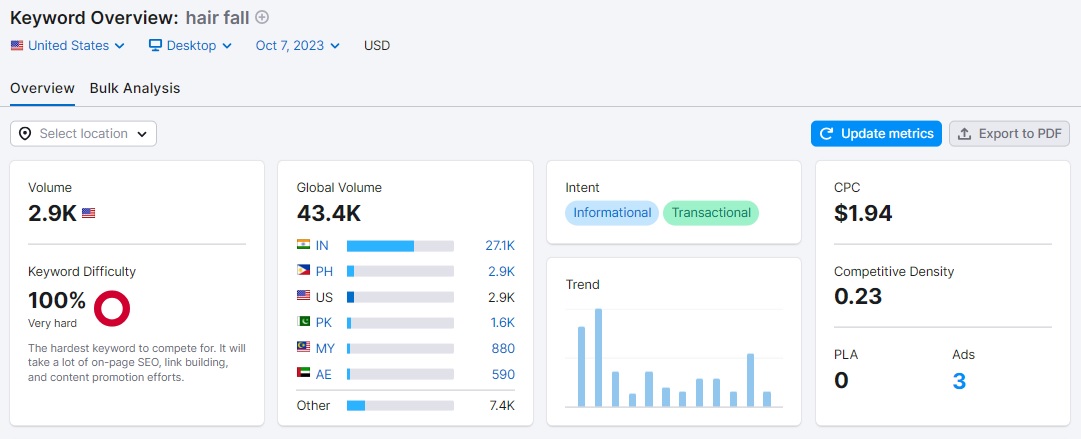
How to Use LSI Keywords
After finding LSI keywords, it is time to incorporate them into your content to boost SEO rankings.
Choose the Appropriate LSI Keywords
Regardless of the method you prefer to find the related or LSI keywords, you will have a massive list of words and phrases. As a first step, choose the terms best suited for your content. For example, for the target keyword ’email marketing’, using Google, you would get a long list of suggestions, including
- Email marketing pros and cons
- Email marketing tips
- Email marketing jobs
- Email marketing tools
- Email marketing course
- Email marketing templates
- Email marketing examples
- How to do email marketing
Now, if your content is about the basics of email marketing, it would be best to include ‘how to do email marketing’ and ’email marketing tips’. On the other hand, ’email marketing jobs’, and ’email marketing course’ would be completely irrelevant.
Include LSI Keywords in the Content
When crafting your content, add LSI keywords throughout the content, including headings, meta descriptions, alt tags, and body. Add related keywords in the same places as the primary or target keyword. Using LSI keywords throughout the content ensures you do not overuse the target keyword and broadens your ranking opportunities.
Remember to include queries related to your target keyword to ensure your content ranks for popular search queries.
Best Practices for Using LSI Keywords
The following are the best practices for using LSI keywords in your content for best results:
Optimize Old Content By Updating
Do not just focus on including related keywords in new content when using LSI keywords. It is equally important to optimize old content by including LSI keywords. Adding associated keywords in old content would help them rank higher in SERPs. It would also increase your search visibility by qualifying to rank for additional keywords.
Optimize Images
Like content, you should also optimize images with LSI keywords. Include related words in alt tags and image names for optimization.
Focus on User Intent
Identify and define your target audience to anticipate their problems, concerns, and demands. The related keywords should reflect what your target audience expects to find in your content. Include questions they are looking for answers and incorporate information they need.
Use Natural Language While Incorporate LSI Keywords
Add related keywords to your content naturally and strategically. They must add value to your content and make sense. In short, the related terms should appear natural to both search engines and readers.
Conclusion
Aiming to rank higher on SERPs requires including LSI keywords in your content. Finding and using related keywords does not call for any technical knowledge and can be done as quickly as explained above. However, ensure LSI keywords appear naturally in content that enhances topical relevance and provides value to readers.

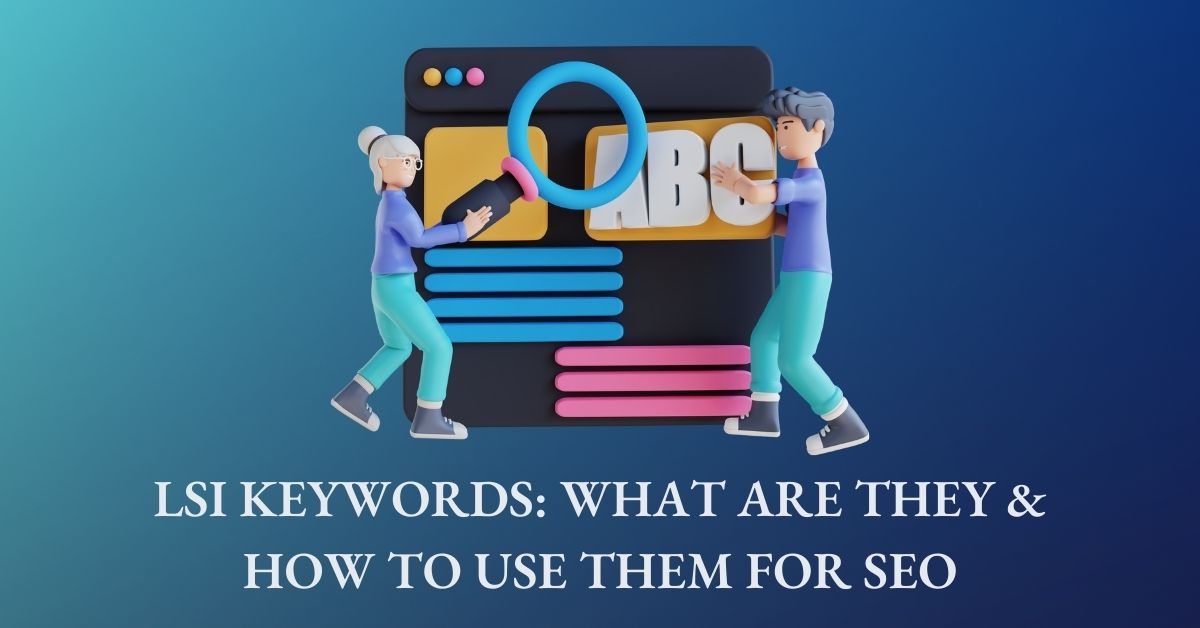
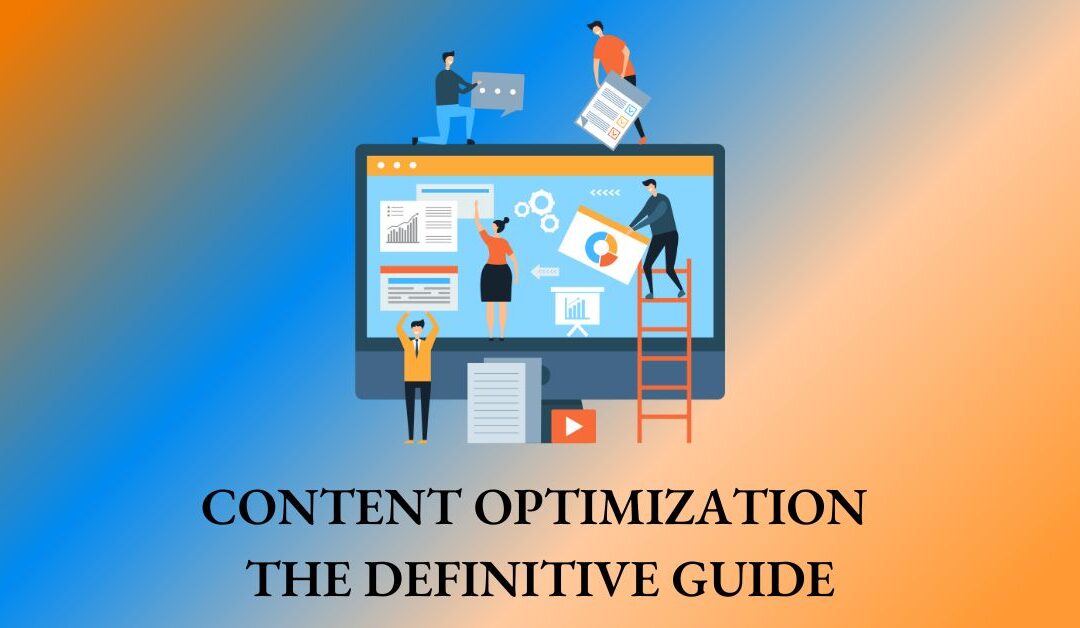
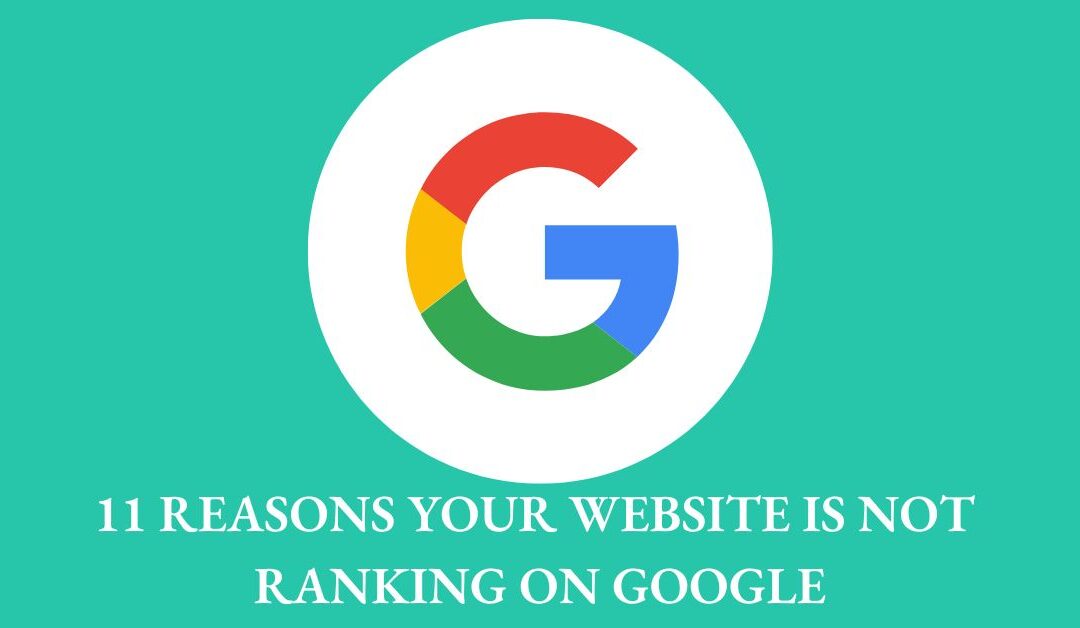
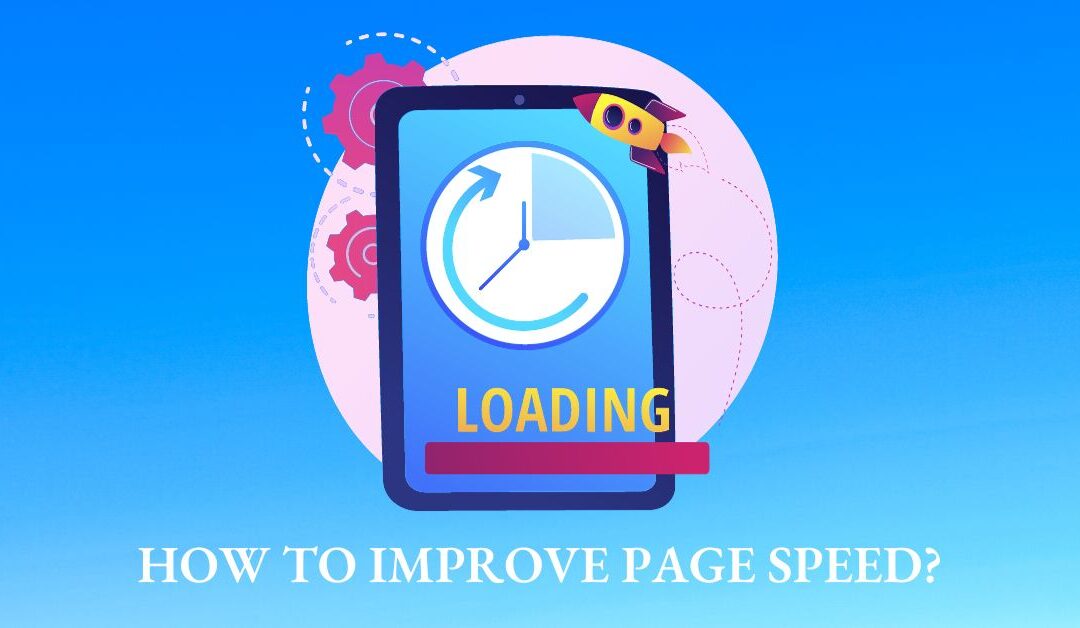
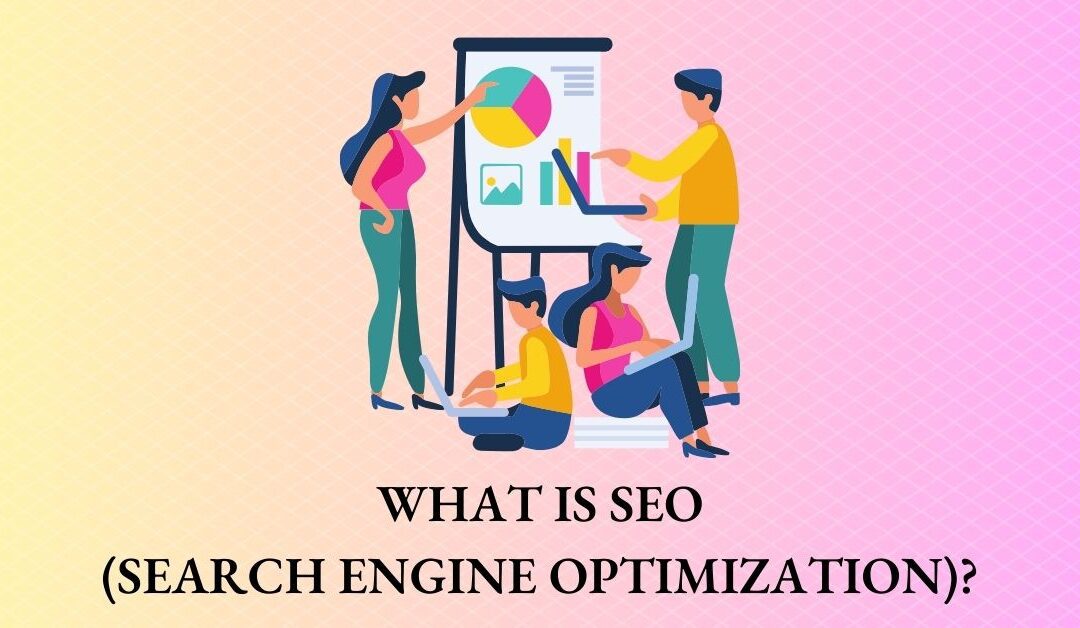
0 Comments